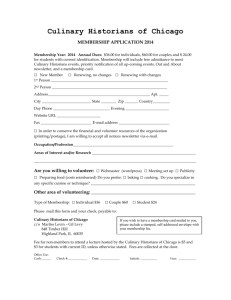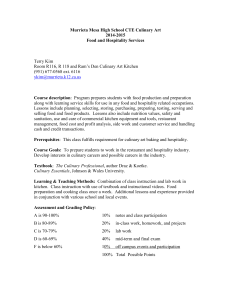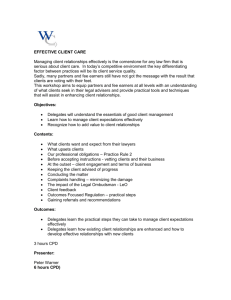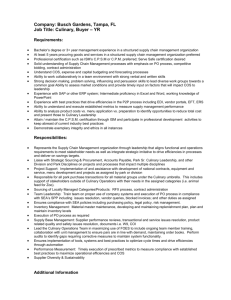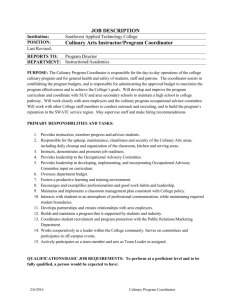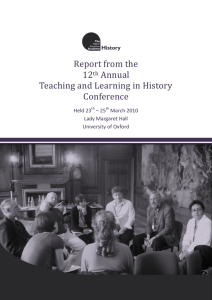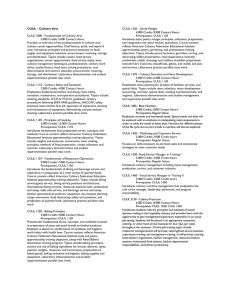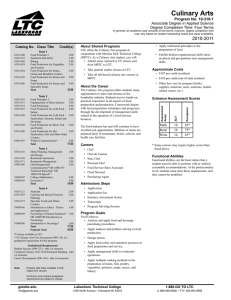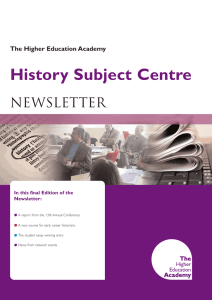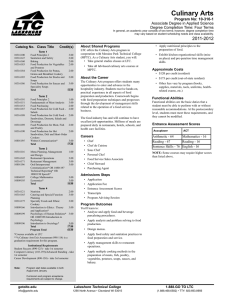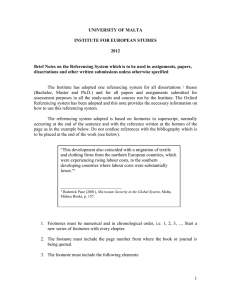Document 12408594
advertisement
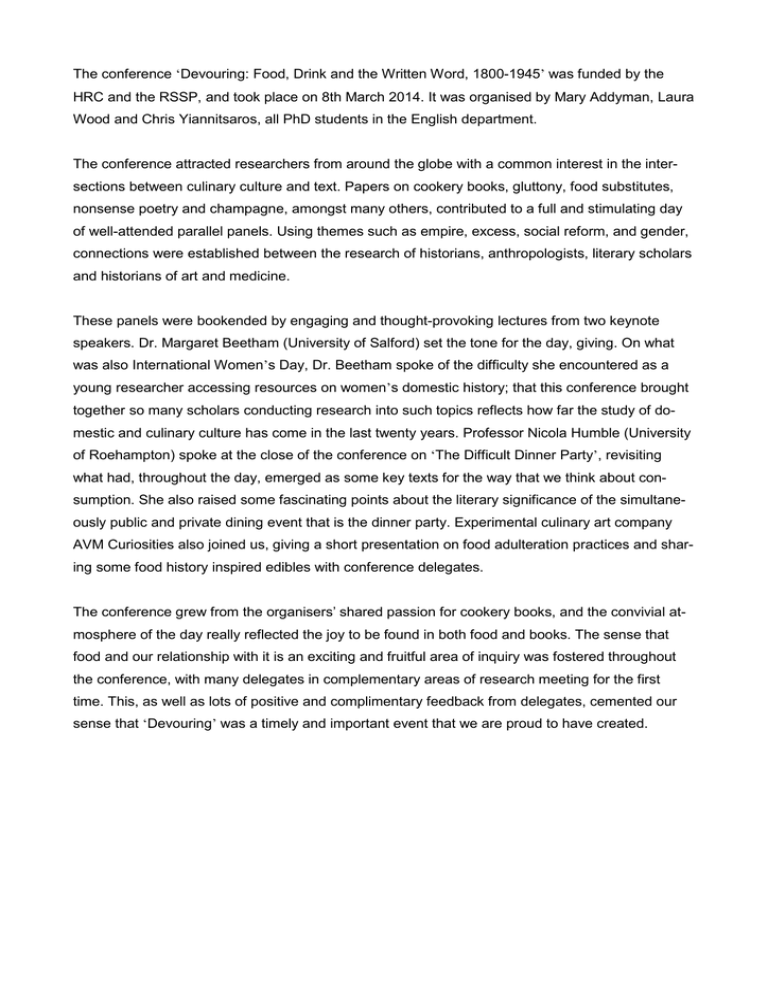
The conference ‘Devouring: Food, Drink and the Written Word, 1800-1945’ was funded by the HRC and the RSSP, and took place on 8th March 2014. It was organised by Mary Addyman, Laura Wood and Chris Yiannitsaros, all PhD students in the English department. The conference attracted researchers from around the globe with a common interest in the intersections between culinary culture and text. Papers on cookery books, gluttony, food substitutes, nonsense poetry and champagne, amongst many others, contributed to a full and stimulating day of well-attended parallel panels. Using themes such as empire, excess, social reform, and gender, connections were established between the research of historians, anthropologists, literary scholars and historians of art and medicine. These panels were bookended by engaging and thought-provoking lectures from two keynote speakers. Dr. Margaret Beetham (University of Salford) set the tone for the day, giving. On what was also International Women’s Day, Dr. Beetham spoke of the difficulty she encountered as a young researcher accessing resources on women’s domestic history; that this conference brought together so many scholars conducting research into such topics reflects how far the study of domestic and culinary culture has come in the last twenty years. Professor Nicola Humble (University of Roehampton) spoke at the close of the conference on ‘The Difficult Dinner Party’, revisiting what had, throughout the day, emerged as some key texts for the way that we think about consumption. She also raised some fascinating points about the literary significance of the simultaneously public and private dining event that is the dinner party. Experimental culinary art company AVM Curiosities also joined us, giving a short presentation on food adulteration practices and sharing some food history inspired edibles with conference delegates. The conference grew from the organisers’ shared passion for cookery books, and the convivial atmosphere of the day really reflected the joy to be found in both food and books. The sense that food and our relationship with it is an exciting and fruitful area of inquiry was fostered throughout the conference, with many delegates in complementary areas of research meeting for the first time. This, as well as lots of positive and complimentary feedback from delegates, cemented our sense that ‘Devouring’ was a timely and important event that we are proud to have created.
